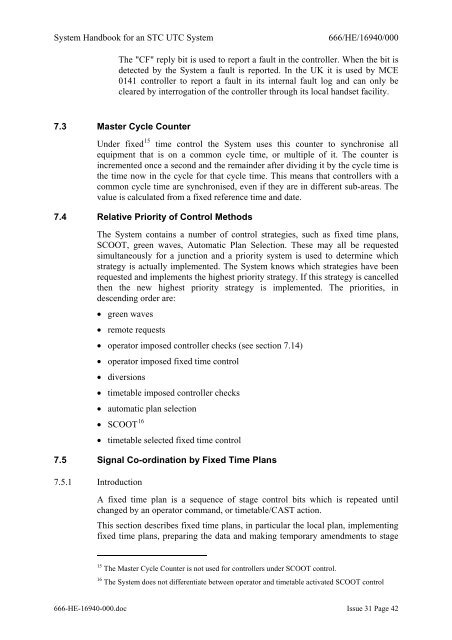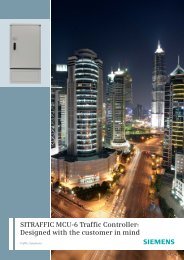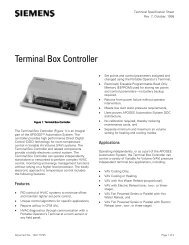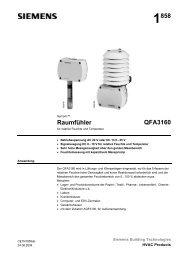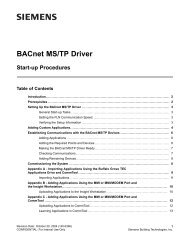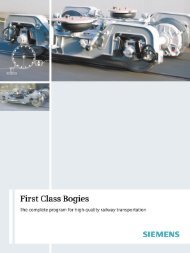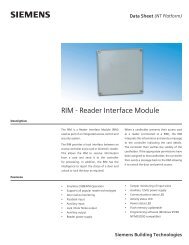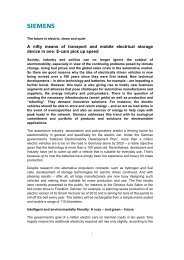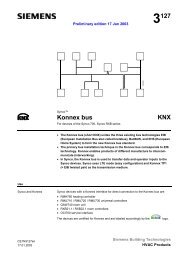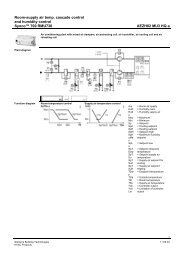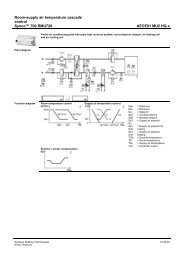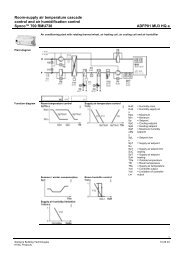UTC System Handbook - Siemens
UTC System Handbook - Siemens
UTC System Handbook - Siemens
Create successful ePaper yourself
Turn your PDF publications into a flip-book with our unique Google optimized e-Paper software.
<strong>System</strong> <strong>Handbook</strong> for an STC <strong>UTC</strong> <strong>System</strong> 666/HE/16940/000<br />
The "CF" reply bit is used to report a fault in the controller. When the bit is<br />
detected by the <strong>System</strong> a fault is reported. In the UK it is used by MCE<br />
0141 controller to report a fault in its internal fault log and can only be<br />
cleared by interrogation of the controller through its local handset facility.<br />
7.3 Master Cycle Counter<br />
Under fixed 15 time control the <strong>System</strong> uses this counter to synchronise all<br />
equipment that is on a common cycle time, or multiple of it. The counter is<br />
incremented once a second and the remainder after dividing it by the cycle time is<br />
the time now in the cycle for that cycle time. This means that controllers with a<br />
common cycle time are synchronised, even if they are in different sub-areas. The<br />
value is calculated from a fixed reference time and date.<br />
7.4 Relative Priority of Control Methods<br />
The <strong>System</strong> contains a number of control strategies, such as fixed time plans,<br />
SCOOT, green waves, Automatic Plan Selection. These may all be requested<br />
simultaneously for a junction and a priority system is used to determine which<br />
strategy is actually implemented. The <strong>System</strong> knows which strategies have been<br />
requested and implements the highest priority strategy. If this strategy is cancelled<br />
then the new highest priority strategy is implemented. The priorities, in<br />
descending order are:<br />
• green waves<br />
• remote requests<br />
• operator imposed controller checks (see section 7.14)<br />
• operator imposed fixed time control<br />
• diversions<br />
• timetable imposed controller checks<br />
• automatic plan selection<br />
• SCOOT 16<br />
• timetable selected fixed time control<br />
7.5 Signal Co-ordination by Fixed Time Plans<br />
7.5.1 Introduction<br />
A fixed time plan is a sequence of stage control bits which is repeated until<br />
changed by an operator command, or timetable/CAST action.<br />
This section describes fixed time plans, in particular the local plan, implementing<br />
fixed time plans, preparing the data and making temporary amendments to stage<br />
15<br />
The Master Cycle Counter is not used for controllers under SCOOT control.<br />
16<br />
The <strong>System</strong> does not differentiate between operator and timetable activated SCOOT control<br />
666-HE-16940-000.doc Issue 31 Page 42


